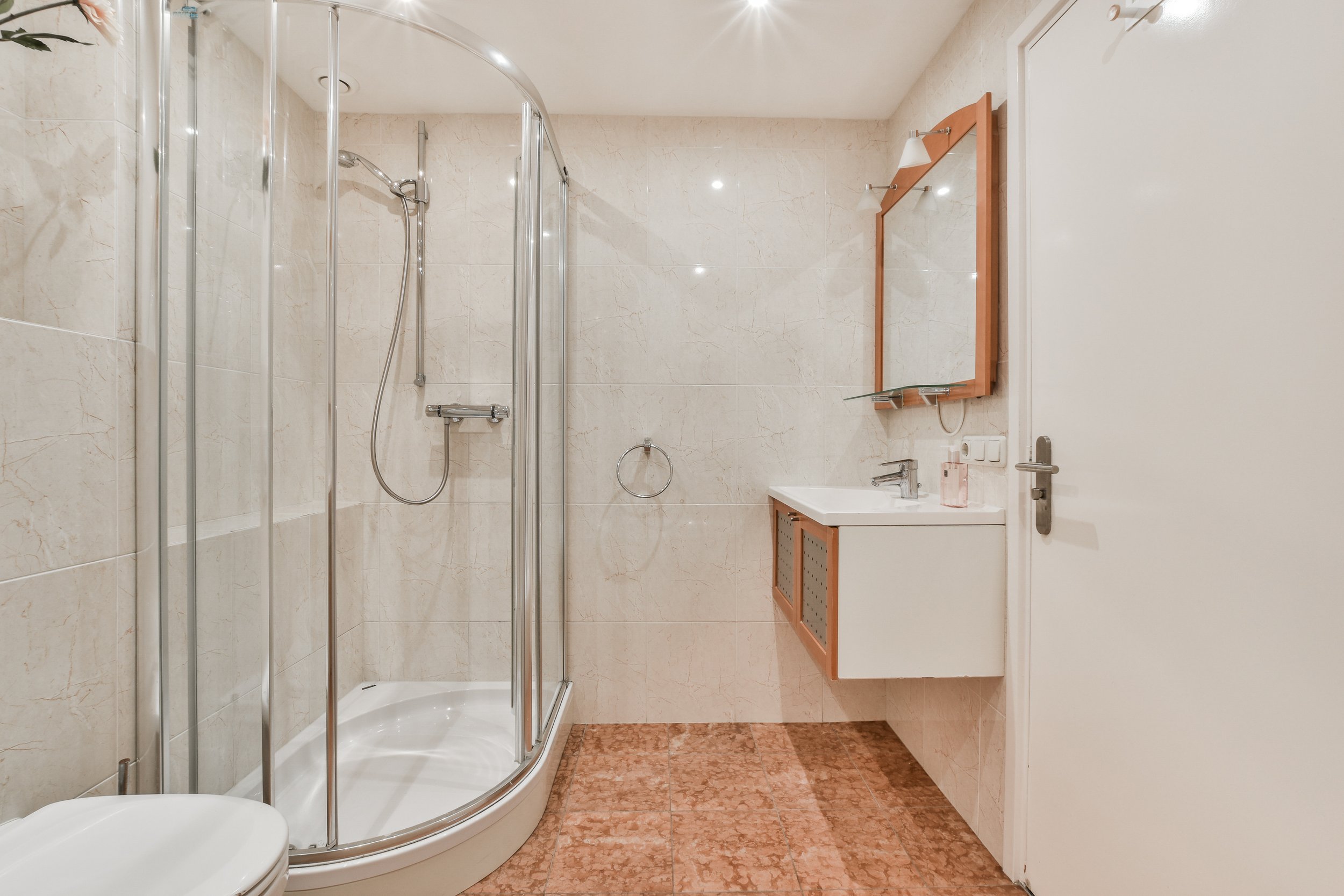
How To Find A Reliable Basement Contractor In Johns Creek?
Homeowners in Johns Creek often start with a simple goal: turn an underused basement into usable square footage. The challenge is picking the right contractor for basement work who can handle Johns Creek soils, local codes, and moisture risks without surprise costs. The right choice means dry floors in July, clean air in January, and a space that adds real value when it is time to sell.
What “Reliable” Means for a Basement Project in Johns Creek
Reliability is measurable. It shows in clean permits, tight schedules, clear bids, and a finished space that stays dry. In Fulton County and the City of Johns Creek, a reliable contractor pulls the correct permits, coordinates inspections, documents change orders, and delivers the final CO if required. It also means sound waterproofing details, radon awareness, and code-compliant electrical and egress — common gaps on DIY or cut-rate jobs.
Basements in Johns Creek face heavy summer humidity, red clay that holds water, and occasional hydrostatic pressure after storms. A reliable partner designs for this environment, not a generic plan pulled from a national catalog.
Know the Local Factors That Make or Break a Basement
Soils in North Fulton drain slowly. After long rain, water can push against foundation walls. Without a drainage plane, water will find hairline cracks. A contractor for basement conversions should discuss subsurface drainage, vapor barriers under slab if cutting and patching, and whether a French drain or interior channel is right for your house.
Humidity is the second big issue. Dehumidification sizing matters. A 1,000 to 1,200 square foot space with typical ceiling height often needs a 50 to 70-pint unit plumbed to a drain. Relying on HVAC alone can leave corners musty and trim swelling. Ask how they plan to control moisture at the building envelope and inside the conditioned space.

Radon sits in a gray zone in Metro Atlanta. Some Johns Creek addresses test low; some do not. A good contractor runs a pre-work radon test and, if needed, roughs in a sub-slab depressurization system before finishes go up. It is inexpensive to prep early, expensive to retrofit later.
Credentials That Actually Matter
Licensing in Georgia is not optional. The contractor should hold a Georgia Residential Basic or Residential-Light Commercial license for structural or layout changes. Basements with framing, new bathrooms, or egress work fall under this. Ask to see the pocket card or look up the license on the Georgia Secretary of State portal. For Johns Creek, the contractor should be familiar with the local permitting portal and inspection sequencing.
Insurance protects you and the crew. Request a certificate of insurance naming you as certificate holder, showing general liability and workers’ comp. This takes minutes for a legitimate firm. If it turns into excuses, move on.
Permitting and inspections are essential. Finishing a basement without permits risks failed sale inspections and costly tear-out. A reliable contractor welcomes inspections, not avoids them.
Pricing Red Flags and What a Solid Bid Looks Like
Basement bids often range. As a rough guide for Johns Creek, expect $45 to $85 per square foot for a straightforward finish with a family room and bedroom, and $80 to $140 per square foot if adding a bathroom, wet bar, or custom millwork. Structural changes, exterior egress, or extensive waterproofing push costs higher.

A solid proposal will show line items: framing, insulation type and R-values, moisture control approach, electrical fixture counts, plumbing fixture allowances, flooring material and area, drywall levels, trim profiles, paint, and cleanup. It should identify exclusions, such as unforeseen structural repairs or rock excavation. Allowances must be realistic. A $500 allowance for a full bath’s fixtures signals corner-cutting or a pending change order battle.
Beware of a bid that is far below the others. Often it skips drainage, uses non-rated vapor barriers, or plans to tie a bath into an undersized ejector pump. Those shortcuts show up as callbacks, odors, or wavy floors within a year.
Timeline, Schedule, and Who Is Actually on Site
A typical 1,000 square foot finish in Johns Creek runs 6 to 10 weeks, depending on complexity and inspection calendars. The contractor should map trades in a reasonable order: demo or prep, framing, MEP rough-in, inspections, insulation and air sealing, drywall, prime and paint, trim, flooring, and finish electrical and plumbing. Slipping past these sequences leads to rework and delays.
Ask who manages the job daily. A project manager who visits Heide Contracting: basement finishing services in Atlanta, GA. 3 to 5 times per week keeps subs aligned and catches moisture issues before drywall. If the company subs everything out, that is fine, but there must be one accountable lead with decision authority.
Questions That Separate Good From Risky
Use a short, focused set of questions during estimates:
- How will you manage moisture in walls and floors?
- What is your plan for radon testing or rough-in?
- Will you pull permits and schedule inspections?
- What is the egress strategy for any bedroom?
- Who is my point of contact, and how often will we meet?
You want plain answers that reference local code, specific materials, and clear accountability.
Waterproofing: The Non-Negotiable Layer
On block or poured walls, a reliable contractor installs a continuous capillary break and uses closed-cell foam or rigid foam against concrete, not fiberglass batts. Where seepage is present or likely, an interior drain with a sump and battery backup is the local standard. Vapor barriers go on the warm-in-winter side with sealed seams. On floors, choose LVP or tile with a thermal break underlayment rather than solid hardwood. These choices survive a wet vacuum event and dry back without replacement.
Layout, Comfort, and Resale
A finished basement should feel like the main level. Ceiling height affects that feeling. If ducts sit low, a soffit strategy that keeps a central corridor high works better than a flat, low lid across the entire space. Lighting should be layered: recessed cans on dimmers, wall sconces or lamps on switched outlets, and 4000K color temperature for clean light without the office vibe.
Code requires smoke and carbon monoxide detectors, AFCI/GFCI protection, and mechanical ventilation that meets airflow targets. Skipping these shows in stale air and inspection fails.
For resale in Johns Creek, a legal bedroom with proper egress adds real value. Placing it near a bath and away from mechanical rooms improves livability and appraisal appeal.
Permits and Inspections in Johns Creek
Expect permits for framing, electrical, plumbing, and mechanical, plus an overall building permit. Typical inspection stops include framing, MEP rough, insulation, and final. Schedule impacts are real, especially around holidays and heavy rain weeks when inspectors are backed up. A reliable contractor builds two to three buffer days into the timeline and communicates inspection dates in writing.
What Past Projects Reveal
Photos help, but walk a completed job if possible. Look at baseboards for swelling, check corners for caulk gaps, and run a moisture meter if the homeowner agrees. Ask for two references from Johns Creek or nearby neighborhoods like Medlock Bridge, Seven Oaks, St Ives, or Rivermont. Ask those homeowners about punch-list speed and how the space performs in summer humidity.
Warranty and Service
A strong basement warranty in this area covers one year for workmanship and materials, longer for sump pumps per manufacturer, and documented support for any drainage system. What matters most is response time. Ask how service calls are scheduled and tracked, and how long parts take to arrive.
DIY Versus Hiring a Specialist
DIY can handle paint and trim touch-ups. But structural changes, bathrooms below grade, and waterproofing call for a specialist. A contractor for basement work brings permits, sequence control, and risk management. The upfront margin often saves money by preventing redraws, failed inspections, and fixes behind finished walls.
How Heide Contracting Helps Johns Creek Homeowners
Heide Contracting focuses on basements across North Fulton and the Atlanta metro. The team designs with local conditions in mind: clay soils, high summer humidity, and strict egress rules. Every project starts with moisture assessment, radon screening if requested, and a clear scope with honest allowances. Crews pull permits, coordinate inspections, and keep homeowners updated with weekly check-ins and milestone photos.
Common requests in Johns Creek include media rooms, guest suites, home gyms with rubber flooring and reinforced mirrors, and wet bars with proper ventilation. Heide Contracting builds these spaces to feel like an extension of the main level, not an afterthought. That shows in quiet HVAC runs, well-placed lighting, and durable finishes that handle kids, pets, and guests.
Homeowners can request a free in-home assessment. The visit covers moisture readings, layout options, and a preliminary budget range. From there, the team prepares a detailed proposal and schedule so decisions are clear before work begins.
A Short, Practical Checklist
- Verify Georgia license, COI, and local permit plan.
- Confirm moisture strategy, radon plan, and egress path.
- Review a line-item bid with realistic allowances.
- Agree on a 6 to 10-week schedule with inspection buffers.
- Get references from Johns Creek or nearby neighborhoods.
Ready to Talk?
If the goal is a dry, comfortable, code-compliant basement that adds real value, schedule a consultation with Heide Contracting. The team serves Johns Creek, Alpharetta, Duluth, Peachtree Corners, and greater Atlanta. Share the square footage, your wish list, and any known moisture history. The first visit is straightforward and informative, and the proposal lays out every step so the project moves from estimate to final walkthrough without surprises.

Heide Contracting provides renovation and structural construction services in Atlanta, GA. Our team specializes in load-bearing wall removal, crawlspace conversions, and basement excavations that expand and improve living areas. We handle foundation wall repairs, masonry, porch and deck fixes, and structural upgrades with a focus on safety and design. Whether you want to open your floor plan, repair structural damage, or convert unused space, we deliver reliable solutions with clear planning and skilled work. Heide Contracting
Atlanta,
GA,
USA
Phone: (470) 469-5627 Website:
https://www.heidecontracting.com,
Basement Conversions
Instagram: @heidecontracting
Facebook: Heide Contracting